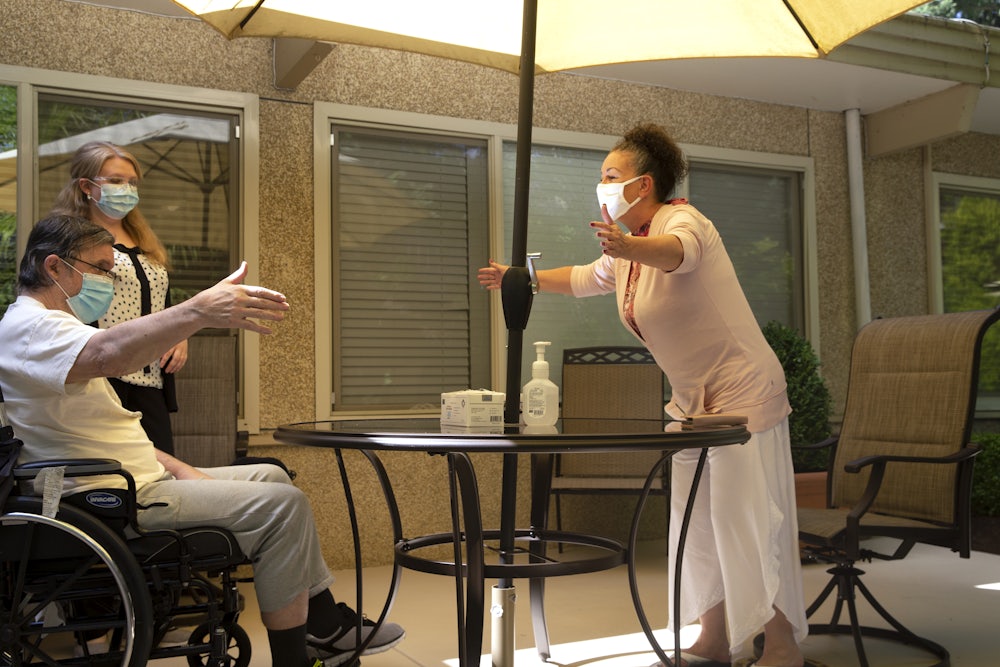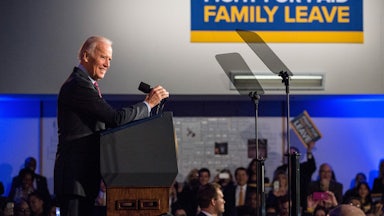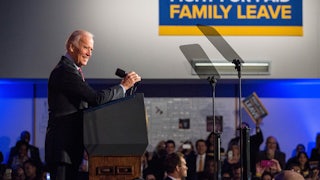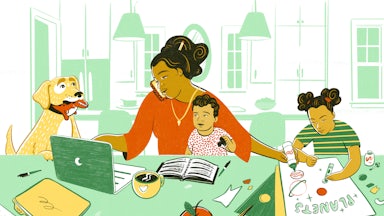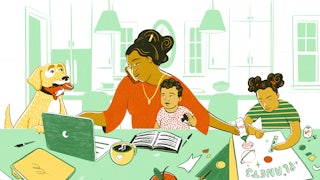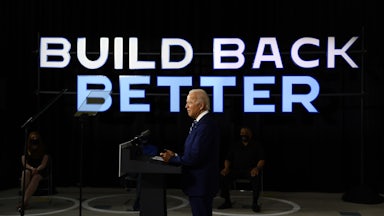One might think, following a tragedy of unimaginable scale, that there would be political will to provide some assistance to people to allow them to weather the unexpected without ruining their lives. But even under the extraordinary circumstances of the Covid-19 pandemic, the congresspeople who work far less than most Americans (for a base salary of $175,000) have declined to offer their constituents the most basic and widespread form of state support. A proposal for universal paid leave for new parents, the sick, the bereaved, or people taking care of ill relatives was whittled down in budget negotiations over the last month from 12 weeks to four. Now it appears to be gone from Biden’s Build Back Better plan entirely. To hear some Democratic senators tell it, to do what most every other comparable nation has done—to allow someone experiencing duress to take a moment to be a person rather than an employee—is just too expensive.
Spend any time on forums designed to support the caretakers of elderly parents or GoFundMe pages raising money for the rent payments of the gravely ill, and it’s obvious what entirely avoidable sorrow is being facilitated by politicians who take their own days off to pal around on yachts. A father on life support after a car accident can’t work, so his family is raising money to cover basic expenses. A family needs help because, with their fourth child on the way, it’s inconceivable that they could, between the two of them, manage two unpaid weeks off. A woman caring for her elderly father while working from home designs intricate daily schedules and wonders if she can get her dad to respect “office hours.”
Denying people paid leave implies that the work of caring for others not only isn’t real work but that it’s an unnecessary distraction from the fundamental point of being alive, which is to have a job. It places the blame for the almost inevitable financial disaster that follows from a person getting pregnant, or sick, or having to watch someone they love die, on the person themselves.
Universal paid leave is overwhelmingly popular, even among Republicans, which may have something to do with the fact that even if a person is primed to see any social safety net spending as a handout, they understand that the things these programs cover happen to pretty much everyone. As Hannah Matthews of the Center for Law and Social Policy told Grace Segers this week, “The care needs for families are universal: Every family will experience it at some point.” People give birth, they get sick, they die, and all of those experiences, in the United States at least, come with crippling costs. While estimates vary wildly, the average price of delivering a child in a hospital is said to be anywhere between $4,500 and $10,808. (If a person has a cesarean section that number spikes, and then there’s the matter of actually raising the child and finding someone to care for it: Infant childcare can cost over $1,200 a month.) Illness is fantastically expensive. Two-thirds of Americans who file for bankruptcy cite medical bills as the main contributing factor. And if those expensive medical procedures don’t work, the median cost of a funeral, as of 2019, was $7,640. The paid leave package originally included in the reconciliation bill wouldn’t have prevented the financial ruin that often follows the most fundamental certainties of being alive. But it might have made an impossible situation feel, for a few weeks at least, somewhat more humane.
The most broadly covered failure here applies to new parents. The hypocrisy of a political landscape that prevents a person from terminating a pregnancy but makes it basically impossible for them to raise a child is obvious. Lack of adequate leave or support has almost certainly contributed to both the mass ejection of women from the workforce over the last year and the long-term decline in birth rates in the U.S. But there are so many other ways in which the lack of paid leave is a disaster, one which unfolded with a particular slow-motion clarity over the last year and a half. People went into work sick because they couldn’t afford not to; they lost income as they were hooked up to ventilators in the intensive care unit; they left jobs to care for family members suffering from “long Covid,” the consequences of which researchers are only now beginning to understand. And just imagine what it would have meant if the people who loved the more than 700,000 casualties of the pandemic could have taken a day or two off to grieve instead of trundling, dazed, back to work.
What feels like a lifetime ago, politicians and pundits said the pandemic was a “great equalizer.” This was obviously a lie: As with most everything else, the catastrophe was lopsided, visited most intensely on communities of color and people without ample cash to spend. But at the very least, it could have been an excuse to equalize access to the most basic form of disaster insurance, ensuring that an eviction wasn’t the logical conclusion of sudden illness or blind panic didn’t follow a pregnancy that wasn’t exactly planned. It’s the kind of insurance people with white-collar jobs or wealth have had all along. It’s certainly insurance members of Congress have.
